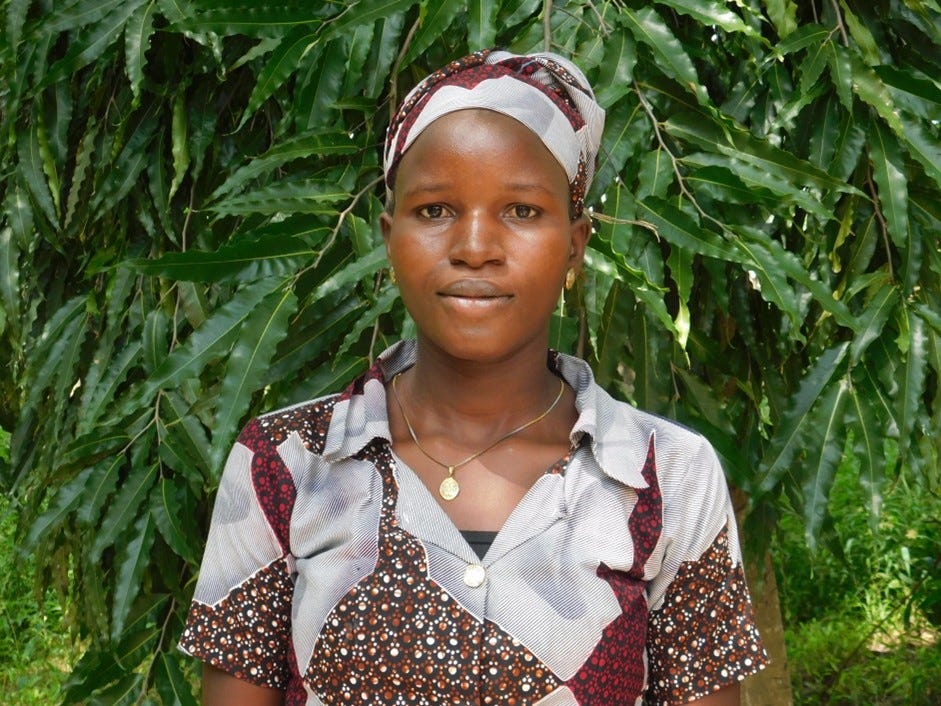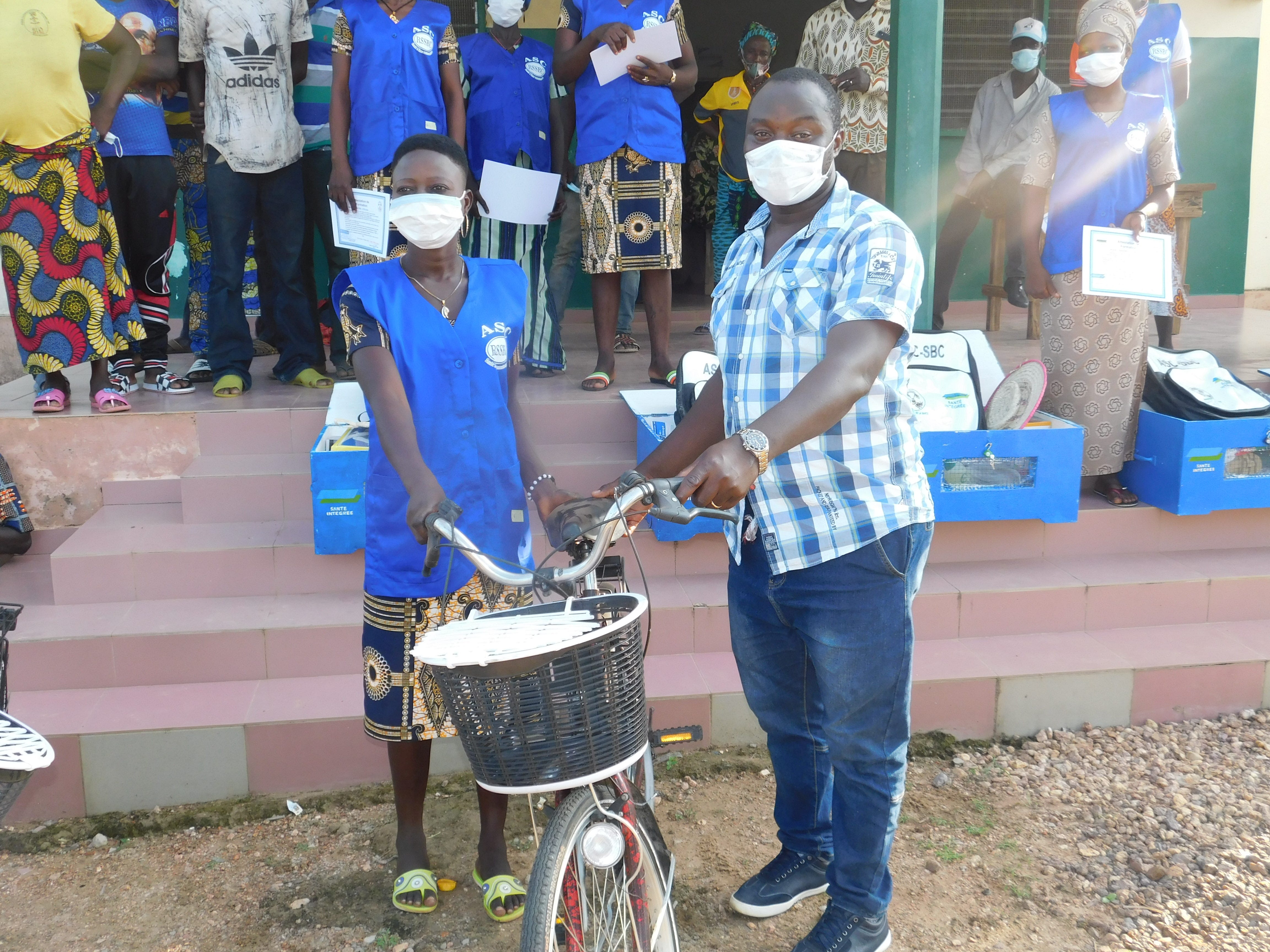Tchéké had always wanted to work in healthcare, so when Integrate Health visited her community in the Kéran district, long before the first case of COVID-19 was officially declared in Togo, she decided to apply to become a Community Health Worker (CHW). For Tchéké, becoming a CHW seemed like the perfect opportunity to work in healthcare, improve her knowledge, and most importantly, save lives. In her community, as in many others throughout Togo, most women didn’t give birth in the hospital, and children did not have access to healthcare when they were sick. Tchéké wanted to change that.

While she was waiting to hear about the next steps to becoming a CHW, COVID-19 struck. At Integrate Health, we halted all large community gatherings to conform to national safety guidelines. And once we did, Tchéké noted that the pandemic made things more challenging. She had to make sure she was safe, which meant ensuring that she and her family took all the precautions such as wearing a face mask and maintaining social distancing. But for Tchéké, this did not stop her.
Despite over 2,700 cases in her country, the COVID-19 pandemic hadn’t impacted what she believes is the most pressing health challenge facing her community. As she explains, “The children and pregnant women in my community do not have access to the healthcare they need, and we can change that.”
Integrate Health had plans to expand into the Kéran district in July of 2020, but the COVID-19 pandemic, which hit Togo in March, changed those plans. The Integrate Health team quickly shifted into crisis mode. The team began twice weekly internal task force meetings and daily leadership briefings as all team members focused their attention on COVID preparedness. This meant we had to hit pause on launch activities.
As the trajectory of the pandemic in Togo became clearer and as the new COVID-19 activities became routine, the Integrate Health program team pivoted back to planning for the upcoming launch. Program Director, Emile Bobozi, was bombarded with requests from community leaders to continue with launch preparations. In the communities Integrate Health was planning to serve, the pandemic hadn’t changed the fact that children were continuing to die from preventable diseases like malaria. They saw the Integrated Primary Care Program as the solution.
“For us, launching the Integrated Primary Care Program during this pandemic wasn’t about meeting a deadline; it was about delivering the care to women and children that they should have already had before, during, and after a pandemic.”
In response, Emile developed a revised plan to continue launch activities incorporating COVID-19 precautions. He consulted his colleagues who worked with him on the launch. He asked them, “If I can create a plan and we can continue with the launch, are you ready to take on the activities?” They answered with a resounding “Yes!”

At Integrate Health, we are committed to ensuring all patients have the access to healthcare services that they need and that they deserve. For us, launching the Integrated Primary Care Program during this pandemic wasn’t about meeting a deadline; it was about delivering the care to women and children that they should have already had before, during, and after a pandemic.
This means access to a dedicated CHW, like Tchéké who is trained in providing high-quality care for children and pregnant women in their homes, who can monitor pregnancies, and treat simple illnesses. It means that when a patient needs to be referred, they can visit a health center that meets critical safety standards and is staffed by health professionals who receive mentoring from an experienced nurse. And when their appointment is over, they can rest assured that the medication they need is in stock and will be given to them at no cost.
This pandemic is far from over, but as we look to the future, we can be confident in our team’s ability to rise to the challenge for our patients. We know that strong primary healthcare systems are the best defense against this and future pandemics. When asked how he felt just before the launch, despite facing incredible logistical challenges, Emile said, “I feel relieved. Now I know patients will have the care they have been waiting for. The care they need, more so now than ever. The care they deserve.”
